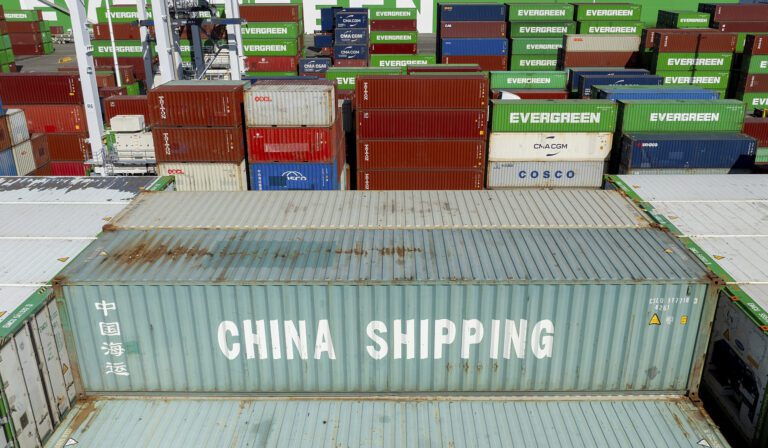Trump Threatens China with Increased Tariffs: A New Trade War Looms
Overview of the Current Trade Tensions
President Donald Trump has escalated the ongoing trade conflict with Communist China by threatening to impose additional tariffs. This move comes in response to China’s state tariff commission announcing a substantial 34% tax on imports from the United States. China has publicly denounced this action, labeling it as “protectionism” and “economic bullying.”
Tariff Increases: The Numbers Speak
Over the weekend, Beijing revealed an increase in tariffs, which has led to the United States now facing an overall tariff rate exceeding 50%. Currently, the tariff rate on Chinese goods stands at 54%, but Mr. Trump is poised to up the ante if China does not retract its recent policy.
"Any country that retaliates against the U.S. by issuing additional tariffs will be met with new, substantially higher tariffs," Trump stated on his social media platform, Truth Social.
If China fails to revoke its tariff increase by the specified deadline of April 8, 2025, the United States plans to impose an additional 50% tariff, raising the total rate to 104%.
A Standoff with Implications for American and Chinese Citizens
While Trump is adamant about not engaging with Chinese officials regarding his threat, China has voiced strong opposition against the U.S. trade strategy. Their foreign ministry expressed concerns about the negative impact on both American and Chinese citizens, stating:
"This is a typical act of unilateralism… exploiting tariffs to subvert the existing international economic and trade order."
The Global Landscape: Other Countries’ Reactions
In the wake of Trump’s new tariffs, attention has shifted to other nations affected by his trade policies. Notably, Japan’s Prime Minister Ishiba communicated his reservations about the tariffs during a recent call with Trump. He emphasized that Japan has been the largest investor in the U.S. for the past five years and stressed the need for cooperation rather than additional barriers.
“We should pursue ways to promote broader cooperation,” Ishiba conveyed.
Engagements Beyond China: Diplomatic Discussions
Treasury Secretary Bessent announced intentions to open negotiations with Japan focusing on tariffs and non-tariff barriers. Furthermore, Ursula von der Leyen, President of the European Commission, indicated readiness to negotiate zero tariffs on specific products while also cautioning that “countermeasures” were a possibility if no agreement could be reached.
“We have offered zero-for-zero tariffs for industrial goods,” she stated, urging a constructive dialogue.
Conclusion: The Future of U.S.-China Relations
The potential for an escalating trade war poses challenges for both the U.S. and China, along with various stakeholders in the international community. As negotiations continue on multiple fronts, the global economic landscape remains uncertain. Diplomacy remains crucial as both nations navigate this increasingly complex trade conflict.
For updates on international trade policies and their impact, stay informed through reputable news sources and governmental announcements.


